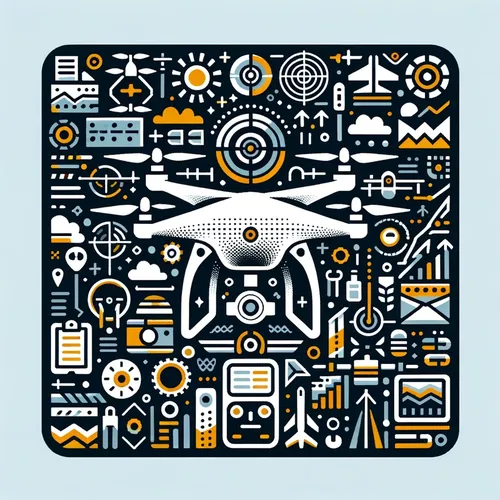Drone Dynamos: Soaring Profits, Plummeting Prices, and the AI Takeover That's Shaking Up the Skies!
- Author
- Quiet. Please
- Published
- Fri 18 Jul 2025
- Episode Link
- https://www.spreaker.com/episode/drone-dynamos-soaring-profits-plummeting-prices-and-the-ai-takeover-that-s-shaking-up-the-skies--67031941
This is you Professional Drone Pilot: Flight Tips & Industry Updates podcast.
For professional drone pilots, mastering advanced flight techniques is crucial for capturing stunning aerial footage and conducting precise inspections. Techniques such as navigating through complex airspace, managing varied weather conditions, and optimizing drone performance are essential skills. Maintaining equipment is also vital; regular checks on propellers, batteries, and sensors can prevent costly downtime and ensure safe operations.
The commercial drone market is experiencing significant growth, driven by adopters across various industries such as construction, agriculture, and energy. The market is expected to reach nearly $68 billion by 2032, with fully autonomous drones leading the charge. These drones can perform operations without human intervention, enhancing efficiency in tasks like agriculture surveys and rescue missions.
Staying updated on certification requirements is important as well. In the United States, drone pilots must be at least 16 years old and pass a knowledge exam to obtain a Remote Pilot Certificate. Maintaining this certification requires completing a recurrent training course every 24 months. Recent news includes the North America drone market expected to reach $26.90 billion by 2033, driven by commercial applications and the rise of drone-as-a-service models.
When dealing with clients, establishing clear communication and pricing strategies is vital. Understanding client needs and providing tailored solutions can enhance customer satisfaction and business reputation. Weather conditions play a significant role in planning flights; pilots must be adept at analyzing forecasts and adjusting plans accordingly. Insurance and liability considerations are also important, as drone operations can involve risks that need to be covered.
As the industry evolves, future trends include increased integration of AI and autonomous systems, expanding the scope of drone applications. The market is becoming more service-oriented, with drone-as-a-service models offering flexibility for businesses. This shift could redefine how companies access and utilize drone technology.
In conclusion, professional drone pilots must be well-versed in both technical skills and industry trends to succeed. By staying informed and adapting to new developments, pilots can leverage opportunities and navigate challenges effectively. Thank you for tuning in. Come back next week for more insights, and remember, this has been a Quiet Please production. For more, visit Quiet Please Dot A I.
For more http://www.quietplease.ai
Get the best deals https://amzn.to/3ODvOta
